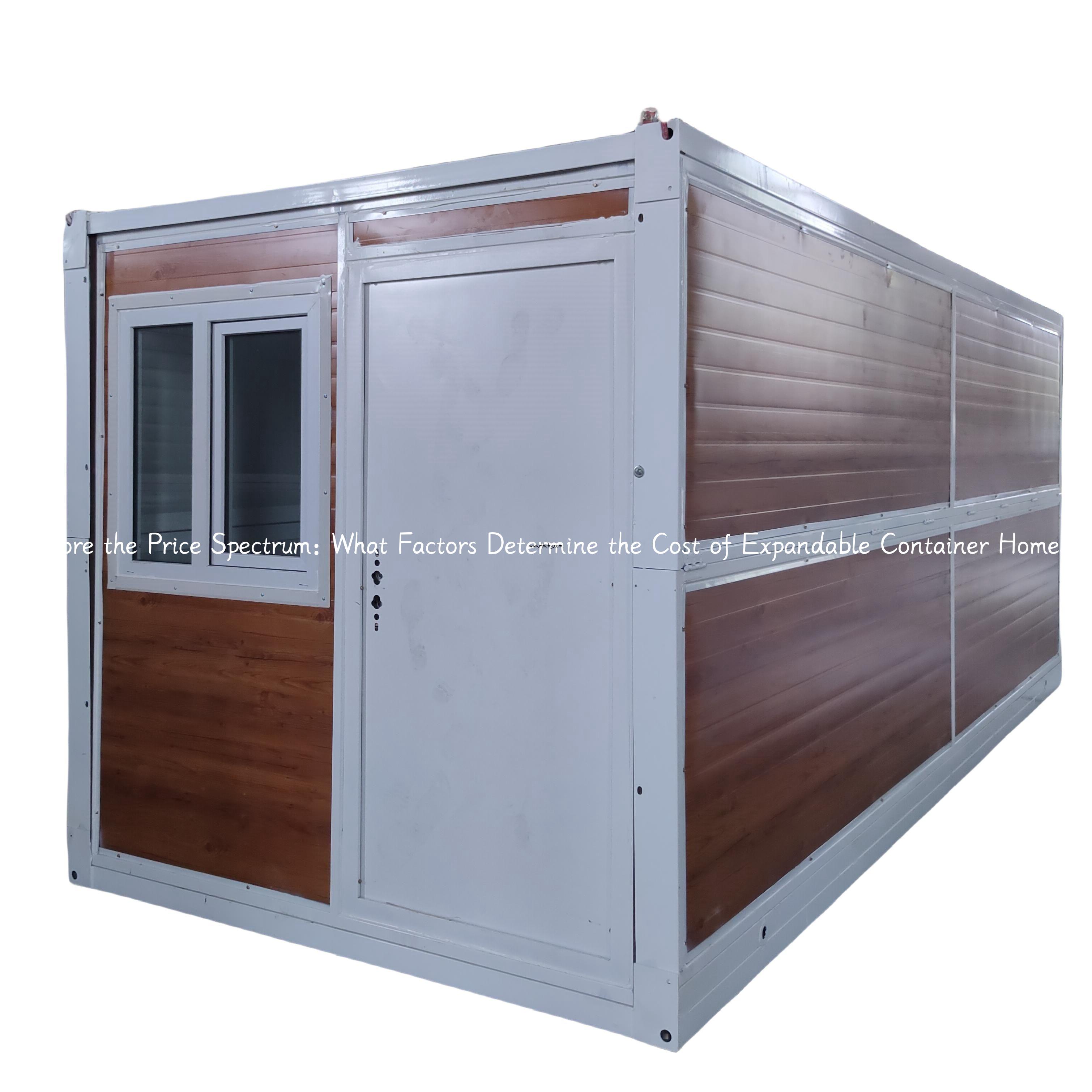Explore the Price Spectrum: What Factors Determine the Cost of Expandable Container Homes?

Explore the Price Spectrum: What Factors Determine the Cost of Expandable Container Homes?
Expandable container homes have gained popularity in recent years due to their affordability and eco-friendly nature. These modular structures provide an innovative housing solution that is customizable, durable, and quick to set up. However, one question that often arises when considering this type of construction is: what factors determine the cost of expandable container homes? Let’s delve into the various elements that influence the price spectrum of these modern dwellings.
1. Size and design: The size and design of an expandable container home significantly impact its price. Larger homes require more containers and additional structural components, leading to higher costs. Moreover, intricate and custom designs also add to the overall price tag of the project. While smaller, more straightforward designs tend to be more affordable, those seeking unique aesthetics should expect to pay a premium.
2. Material quality: The quality of the materials used in a container home affects both its durability and cost. High-grade construction materials will result in a sturdier and long-lasting home. For instance, corrosion-resistant steel panels, insulation materials, and sustainable building components may increase the overall cost, but they contribute to the structure’s lifespan and energy efficiency.
3. Location: The location of the construction site can impact the cost of building an expandable container home. Shipping containers need to be transported to the site, and if you live far from a container yard, you might incur additional transportation expenses. Similarly, the accessibility and terrain of the location can affect the project’s complexity and the resources required, subsequently influencing the price.
4. Amenities and features: The inclusion of various amenities and features can significantly alter the cost of an expandable container home. These might include plumbing systems, kitchen fixtures, electrical installations, and heating or cooling systems. Additionally, additional features such as rooftop gardens, solar panels, or rainwater harvesting systems can elevate the expense but also enhance the sustainability and comfort of the home.
5. Site preparation and foundation: Before installing an expandable container home, site preparation and foundation work are crucial. Assessing the soil conditions and making necessary seismic adjustments, if required, might add to the total expenditure. Additionally, some sites may require leveling or excavation work, which should be factored into the overall cost estimation.
6. Customization and add-ons: Customization and personalized choices are often desired when creating a container home. These could range from selecting specific finishes, flooring materials, cabinets, or special layouts tailored to individual preferences. While customization adds uniqueness and reflects personal taste, it also contributes to the overall cost of the project.
7. Local regulations and permits: Understanding local building codes and obtaining the necessary permits is an essential aspect of any construction project, including expandable container homes. Some regions may have specific guidelines and regulations regarding container home construction, and compliance with these regulations may increase costs, either directly or indirectly, through additional paperwork or modifications.
It is important to note that prices for expandable container homes can vary significantly depending on various factors, and it is recommended to consult professionals in the field for precise cost estimations based on individual requirements.
In conclusion, the cost of an expandable container home is influenced by size, design, material quality, location, included amenities, site preparation, customization, and local regulations. By considering these factors, individuals can gauge the price spectrum and make informed decisions regarding their container home project. Ultimately, with proper planning and careful consideration of these aspects, an expandable container home can provide a cost-effective and sustainable housing alternative.













